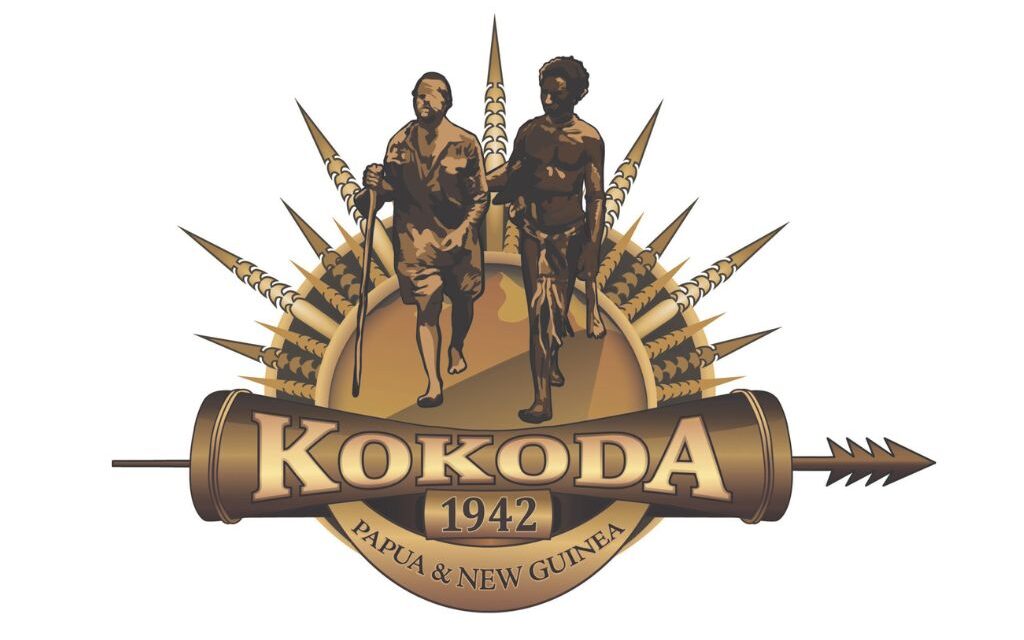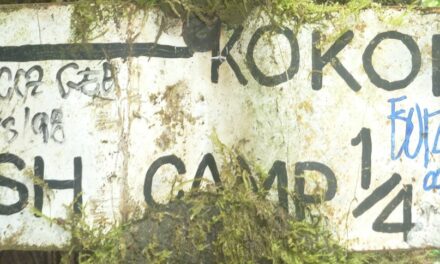The Kokoda Trail had been subject to random blockades by village-based landowners over the past 15 years due to the dysfunction of the management system imposed on them by Canberra environment officials. Most closures are expressions of frustration over their failure to receive a fair share of benefits from Kokoda tourism across their traditional land.
The recent blockade by a group of dissident Port Moresby-based Kodu landowners will add to their angst as they will now be denied up to K2 million in lost jobs and earnings during the peak September-October trekking period and the rest of the year.
Of more concern is the fact the dissident blockaders have not expressed any intention of sharing compensation payments with their wan-tok communities across the Trail because of the government’s closure of the Kodu goldmine 15 years ago. Nor have they expressed any interest in investing in initiatives that would enhance the value of pilgrimage tourism for benefit of traditional landowner communities across the Trail.
They know the Kodu gold deposit is not on the Kokoda Trail, but they are intent on holding their fellow wan-toks across the Trail to ransom for their own personal benefit in Port Moresby.
Kodu landowners have form in this area as there is no evidence of them sharing any of the reported K10 million they received as compensation in 2013 after they relocated themselves from Nauro village to Port Moresby.
The action of the dissident blockaders has damaged PNGs international reputation as a reliable tourism destination which will result in fewer tourists and a further decline in pilgrimage tourism across the Kokoda Trail.
The blockade has also exposed the impotence, incompetence and dysfunction of government agencies charged with the management of Kokoda tourism. These include the Canberra funded ‘Kokoda Initiative’, the Department of Provincial and Local-Level Government Affairs (DPLLGA), the Conservation Environment Protection Authority (CEPA); the Tourism Promotion Authority (TPA); and the Kokoda Track Authority (KTA). Management is exercised through a KTA Board appointed by the Minister for Provincial and Local-Level Government, and a Kokoda Initiative Committee (KIC) appointed by the Minister for Conservation, Environment and Climate Change.
The Minister for Tourism, Arts and Culture has been relegated to membership of both KTA Board and the KIC Committee.
The resultant decision-making paralysis is evident in the fact that while the Police Commissioner declared it to be illegal nobody took any action to instruct him to arrest those responsible for it.
Their decision-making ability is further hampered by the fact that none have ever trekked across it with a professional group and therefore lack an appreciation of the value of pilgrimage tourism and its positive impact on international tourists. This understanding is not something that can be gained from sitting behind computer screens in Port Moresby – nor can it be conveyed in the comfortable settings of committees, forums, or workshops.
We can only hope the recent appointment of Hon Belden Namah as Minister for Tourism, Arts and Culture will be the catalyst for having the Kokoda Trail managed as a commercial enterprise for the economic benefit of the traditional landowner communities across it. Belen Namah has a reputation as an ‘action man’. He is a graduate of the Royal Military College, Duntroon so he can be expected to have a keen appreciation of the value of pilgrimage – he was also an action leader during the Sandline Crisis in 1996 and later served as Deputy Prime Minister.
The following paper outlines the circumstances leading to the current debacle and the essential actions steps now needed to restore the sullied reputation of Kokoda tourism if they wish to realize its potential as a world-class pilgrimage destination:
- National Executive Council (NEC) must use the provisions of the Lands Act to acquire the 1972 gazetted boundaries of the Kokoda Trail as a National Tourism Asset;
- Responsibility for the management of the Kokoda Trail must be transferred from the Minister for Provincial and Local-Level Government, and from the influence of the Minister for Environment, Conservation and Climate Change, to the Minister for Tourism, Arts and Culture; and
- The Kokoda Trail must be managed as a commercial tourism enterprise for the economic benefit of the traditional landowner communities across it.
So, if it’s to be – it’s now up to PNG!





